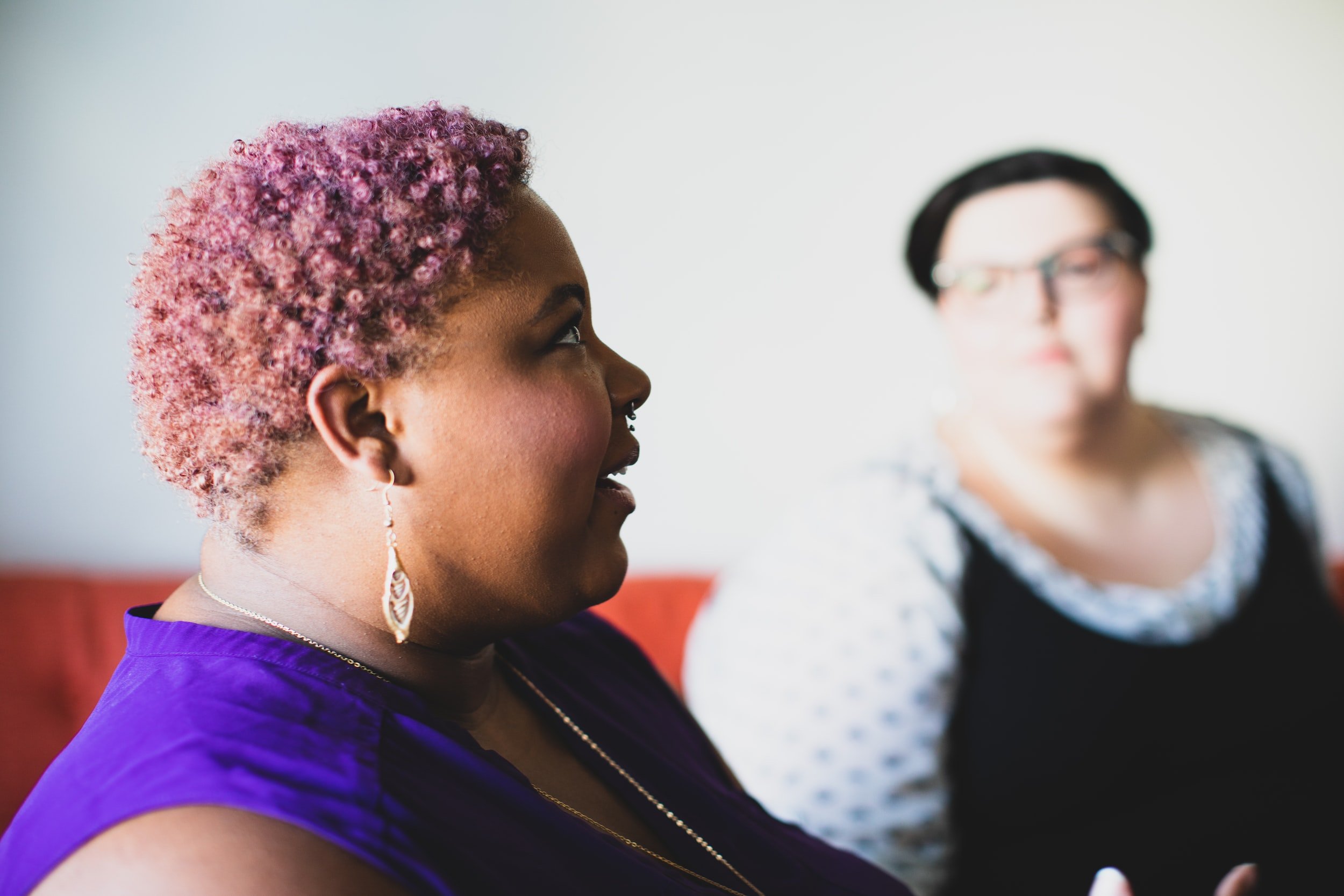
Therapy for adult individuals.
mind. body. soul.
About my practice.
My approach is directive, yet curious; irreverent, yet deeply honoring; sincere with a good dose of humor and playfulness. I work with adults age 18+. My areas of clinical focus include:
sexual concerns (e.g. sexual orientation questions, sexual identity, sexual functioning, or sexual behaviors)
body image and/or disordered eating
LGBTQ+ concerns
stress, anxiety, and depression
compassion/caregiver fatigue
relationships/interpersonal functioning
life transitions (starting or graduating college, divorce, starting a new relationship, moving, etc.)
My therapeutic lens is eclectic and is informed primarily by psychodynamic psychotherapy, attachment theory, Internal Family Systems (IFS), Health at Every Size (HAES), Acceptance and Commitment Therapy (ACT), and Dialectical Behavioral Therapy (DBT).
I’m committed to anti-oppression/anti-racist work; in my therapy practice, this means I acknowledge and incorporate the impact of systemic harms and oppression into your treatment. My learning is heavily influenced by teachers such as Resmaa Manekam, Dr. Caprice Hollins and Cultures Connecting in Seattle, and Rev. angel Kyodo williams.
I also practice from a sex-positive and weight-neutral approach. I received my yoga instructor certification in 2017, and I am a certified Holistic Sex Therapist through ISEE.
A few important things to note about sex therapy:
Sex therapy is meant to be a safe, private setting where sensitive and personal topics can be discussed. Although we may be discussing sexually explicit experiences and feelings, sex therapy does not involve any type of sexual exchange, nudity, or client/therapist touching.
While some things we discuss may be uncomfortable, you will never be forced to disclose something unwillingly. Boundaries and direct communication are highly prioritized and in each therapy session, the client is ultimately the guide of how the session goes.
I will do my best to check in with you and ask questions in order to clarify language. Know that it is okay if you are uncertain how to describe certain experiences and emotions - we will work together and go slowly if needed so that you feel understood.
Language borrowed from Dr. Elizabeth Watt